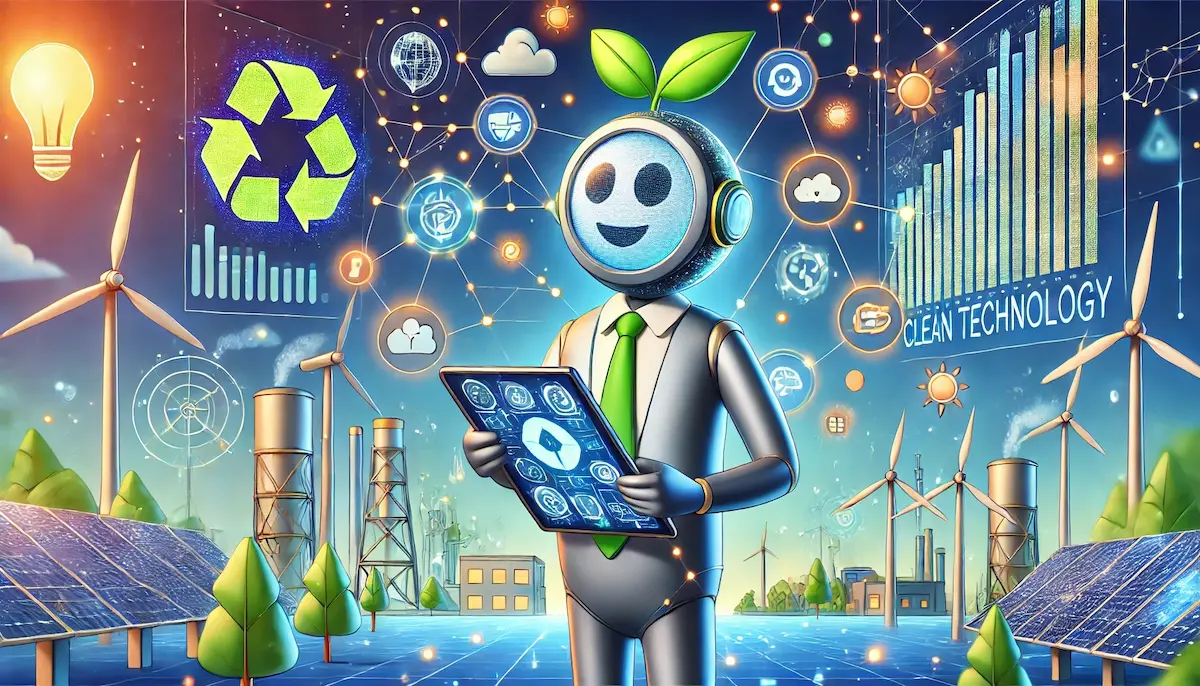Cleantech, or clean technology, refers to products, services, and processes that use renewable materials and energy sources, reduce emissions and waste, and have a minimal impact on the environment. The primary goal of cleantech is to create a sustainable future by addressing environmental challenges while driving economic growth. This article explores what cleantech is, how it works, and its benefits and applications.
What Is Cleantech?
Cleantech encompasses a broad range of technologies and practices designed to improve environmental sustainability. These technologies aim to reduce or eliminate negative environmental impacts through energy efficiency improvements, the sustainable use of resources, and the reduction of pollution and waste. Cleantech spans various sectors, including energy, transportation, water, agriculture, and manufacturing.
How Does Cleantech Work?
Cleantech works by integrating innovative technologies and practices into existing systems to enhance sustainability. Here are some key technologies and their applications in cleantech:
Renewable Energy
Renewable energy sources, such as solar, wind, hydro, and geothermal, generate electricity without emitting greenhouse gases. These sources are sustainable and help reduce dependence on fossil fuels.
- Solar Power: Uses photovoltaic cells to convert sunlight into electricity.
- Wind Power: Utilizes wind turbines to generate electricity from wind energy.
- Hydropower: Generates electricity by harnessing the energy of flowing water.
- Geothermal Energy: Uses heat from the Earth’s core to produce electricity and heating.
Energy Efficiency
Energy efficiency technologies reduce energy consumption and improve the performance of buildings, appliances, and industrial processes.
- Smart Grids: Use digital technology to optimize the distribution and consumption of electricity.
- LED Lighting: Consumes less energy and has a longer lifespan compared to traditional lighting.
- Energy-Efficient Appliances: Designed to use less energy while maintaining performance.
Waste Management
Cleantech solutions in waste management focus on reducing, reusing, and recycling waste to minimize environmental impact.
- Recycling Technologies: Convert waste materials into reusable resources.
- Composting: Breaks down organic waste into nutrient-rich soil amendments.
- Waste-to-Energy: Converts waste materials into energy through processes like incineration and anaerobic digestion.
Water Management
Cleantech in water management aims to ensure the sustainable use and treatment of water resources.
- Water Purification: Technologies that remove contaminants from water to make it safe for drinking and other uses.
- Desalination: Converts seawater into fresh water by removing salt and other impurities.
- Smart Irrigation: Uses sensors and data analytics to optimize water use in agriculture.
Sustainable Agriculture
Cleantech in agriculture focuses on improving food production while reducing environmental impact.
- Precision Agriculture: Uses GPS, sensors, and data analytics to optimize farming practices.
- Vertical Farming: Grows crops in stacked layers to maximize space and reduce water use.
- Organic Farming: Avoids synthetic chemicals and emphasizes natural processes.
Green Transportation
Cleantech solutions in transportation aim to reduce emissions and improve fuel efficiency.
- Electric Vehicles (EVs): Powered by electricity instead of fossil fuels, reducing greenhouse gas emissions.
- Hydrogen Fuel Cells: Convert hydrogen into electricity, emitting only water as a byproduct.
- Public Transit Innovations: Includes electric buses and smart transit systems to reduce the carbon footprint of transportation.
Benefits of Cleantech
Environmental Protection
Cleantech helps reduce pollution, conserve natural resources, and mitigate climate change by minimizing the environmental impact of human activities.
Economic Growth
Investing in cleantech creates jobs, stimulates innovation, and drives economic growth. It opens new markets and opportunities for businesses and entrepreneurs.
Energy Security
By diversifying energy sources and increasing energy efficiency, cleantech enhances energy security and reduces dependence on fossil fuels.
Health Improvements
Reducing pollution and improving environmental quality through cleantech leads to better public health outcomes, including lower rates of respiratory and cardiovascular diseases.
Sustainable Development
Cleantech supports sustainable development by balancing economic growth with environmental stewardship and social well-being.
Resource Conservation
Cleantech promotes the efficient use of resources, reducing waste and conserving water, energy, and raw materials.
Applications of Cleantech
Residential and Commercial Buildings
Cleantech is applied in building design and construction to improve energy efficiency, reduce waste, and enhance indoor environmental quality. Examples include energy-efficient HVAC systems, green building materials, and smart home technologies.
Industrial Processes
In industry, cleantech solutions optimize production processes to reduce energy consumption, minimize waste, and lower emissions. This includes the use of renewable energy, waste heat recovery, and advanced manufacturing technologies.
Urban Development
Cities use cleantech to create sustainable urban environments. This includes green infrastructure, smart city technologies, and sustainable transportation systems.
Agriculture
Farmers adopt cleantech solutions to enhance productivity while reducing environmental impact. This includes precision farming, organic practices, and water-efficient irrigation systems.
Energy Production
Energy producers integrate cleantech to generate electricity from renewable sources, improve grid efficiency, and develop energy storage solutions.
Water Treatment and Distribution
Water utilities use cleantech to treat wastewater, purify drinking water, and optimize water distribution networks.
Conclusion
Cleantech is a critical driver of sustainability, addressing environmental challenges while promoting economic growth and improving quality of life. By integrating advanced technologies into various sectors, cleantech helps reduce pollution, conserve resources, and create a more sustainable future. As global awareness of environmental issues grows, the adoption of cleantech solutions will continue to expand, paving the way for a cleaner, greener world.
Blockfine thanks you for reading and hopes you found this article helpful.
